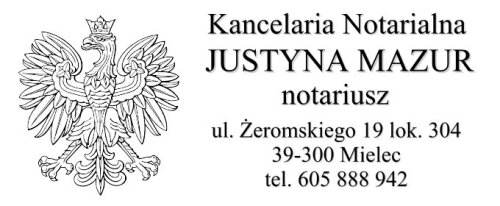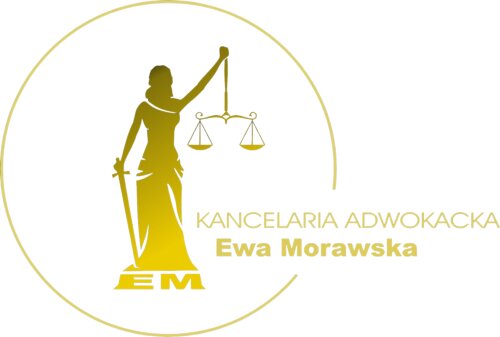Best Inheritance Law Lawyers in Poland
Share your needs with us, get contacted by law firms.
Free. Takes 2 min.
Or refine your search by selecting a city:
List of the best lawyers in Poland
About Inheritance Law in Poland
Inheritance law in Poland governs how a deceased person’s assets pass to heirs. The two main paths are testamentary succession (spadek created by a will) and intestate or statutory succession (dziedziczenie ustawowe) when there is no will. The system also protects a reserved portion for close heirs, known as zachowek, which cannot be completely disinherited. Real estate, bank accounts, and shares form the typical asset mix that transfers through the inheritance process.
Inheritance procedures may involve a notary or a common court, depending on the case. A notary is often used for acts of inheritance (akt poświadczenia dziedziczenia) when there are no disputes. For contested matters, a probate court handles the declaration of inheritance (stwierdzenie nabycia spadku). Cross-border assets can complicate the process and may require additional jurisdictional steps.
Understanding the timelines and potential tax implications is essential. In Poland, the process may take several months in straightforward cases and longer for complex disputes or assets abroad. Working with a qualified legal professional helps ensure correct filing, proper claims, and efficient resolution.
Source: The Civil Code regulates inheritance issues including testamentary and intestate succession.
Why You May Need a Lawyer
In Poland, specific, real-world scenarios often require professional legal help in inheritance matters. These examples show concrete circumstances where a qualified attorney, legal counsel, or solicitor can add value.
- Challenging or validating a will where you believe the will is invalid or improperly executed, or you suspect undue influence. An attorney can assess validity, interpret clauses, and guide you through court or notarial steps.
- Protecting the zachowek rights when a close relative is disinherited or when you fear a reduced reserved share. A lawyer can file timely claims and argue for the rightful portion before the relevant authority.
- Handling real estate and cross-border assets when the estate includes property in Poland and abroad. A lawyer helps coordinate with notaries, tax authorities, and foreign jurisdictions to avoid gaps or double taxation.
- Filing for stwierdzenie nabycia spadku or akt poświadczenia dziedziczenia to obtain a formal confirmation of ownership, especially when heirs need to register property or sell assets. A lawyer can prepare documents and represent you before notaries or courts.
- Dealing with inheritance taxes and reporting for assets received, including determining taxable value and appropriate exemptions. A lawyer can liaise with tax authorities and ensure compliance.
- Settling disputes among heirs over asset division, debt liability, or interpretation of a will. A lawyer can negotiate settlements or represent you in court to protect your interests.
Local Laws Overview
Polish inheritance matters are primarily shaped by titles and articles within two key legal frameworks, plus supporting regulations. The following laws are commonly cited in practice.
- Kodeks cywilny (Civil Code) - governs both testamentary and intestate succession, including the rights of heirs and the concept of zachowek. The code has its origins in 1964 and has undergone numerous amendments to reflect contemporary practice and policy.
- Ustawa o podatku od spadków i darowizn (Tax on inheritances and donations) - regulates the taxation of inherited assets and gifts, with varying rates and exemptions depending on kinship and asset value. The law dates back to 1983 and remains subject to updates and adjustments.
- Ustawa o notariacie (Notary Law) - governs notarial acts connected with inheritance, such as akt poświadczenia dziedziczenia and the formal handling of wills. The current framework has been in force since 1991 and is periodically revised.
For current versions and textual details, consult the official legal database ISAP and government portals. These sources provide consolidated texts and the latest amendments.
Source: The Internetowy System Aktów Prawnych provides current texts of Polish laws, including the Civil Code.
Source: Inheritance and gift tax guidelines outline thresholds, exemptions, and filing requirements for Polish taxpayers.
Frequently Asked Questions
What is inheritance law in Poland about?
Inheritance law covers how a deceased person’s assets pass to heirs, either through a will or by statutory rules. It also includes rights like zachowek for certain close relatives.
How do I start a spadek process in Poland?
Begin by identifying the type of succession and collecting key documents like the death certificate and will, if any. Then decide whether to pursue a court declaration of inheritance or a notarial act.
When do I pay inheritance tax in Poland?
Tax is due on inherited assets according to the value and the relation to the deceased. Thresholds and rates vary by kinship and asset type.
Where do I file for stwierdzenie nabycia spadku?
Filing typically occurs at a regional court or a notary, depending on whether disputes exist and how the estate is structured.
Why is zachowek important for heirs?
Zachowek guarantees a minimum share for close heirs, protecting them from being completely disinherited. It can affect how a will is interpreted.
Can I contest a will in Poland?
Yes, you can challenge a will if you can show invalid execution, fraud, coercion, or inequitable provisions under applicable law.
Should I hire a lawyer for a spadek case?
In most cases, yes. A lawyer helps with document preparation, filing deadlines, and negotiating settlements or court arguments.
Do I need a notary for inheritance matters?
Not always, but a notary is common for notarial acts when there are no disputes. They help formalize transfers and facilitate property registration.
Is cross-border inheritance allowed in Poland?
Yes, Poland recognizes cross-border estates, which may involve foreign assets or heirs. Specialist advice helps coordinate multiple jurisdictions.
How much does a Polish inheritance lawyer typically charge?
Costs vary by case complexity, location, and whether the matter resolves through negotiation or court proceedings. Ask for a written retainer and fee schedule.
What is the difference between testamentary and intestate succession?
Testamentary succession follows a valid will, while intestate succession uses statutory rules when no will exists. The latter prioritizes certain relatives by law.
How long does an inheritance case take in Poland?
Simple cases may conclude in several months; complex matters with disputes can take a year or longer, especially with real estate or cross-border assets.
Additional Resources
- Internetowy System Aktów Prawnych (ISAP) - Official database providing current texts of Polish laws, including the Civil Code and inheritance provisions. https://isap.sejm.gov.pl/
- Podatki.gov.pl - Government portal with guidance on inheritance and gift taxes, exemptions, and filing requirements. https://www.podatki.gov.pl/spadek-i-darowizny/
- Krajowa Administracja Skarbowa (KAS) - Tax authority information about tax administration related to inherited assets. https://www.gov.pl/web/kas
Next Steps
- Define your goal and list all assets, debts, and potential heirs related to the estate. This helps choose the correct path (will or intestate).
- Gather essential documents including death certificate, any will, property deeds, bank statements, and debt records. Prepare a list of known or potential heirs.
- Consult a Polish inheritance lawyer to evaluate the case, explain options, and estimate timelines and costs. Ask for references and a written fee schedule.
- Decide on the formal route whether to pursue a notarial act or a court declaration of inheritance, based on assets and disputes. Your lawyer can file on your behalf.
- Prepare and file required documents with the appropriate authority (notary or court) and track all deadlines to avoid penalties.
- Address tax implications early by consulting with a tax professional or your attorney to understand thresholds and deadlines.
- Plan for asset transfer once inheritance is confirmed, including title deeds, registrations, and potential sales or loans against the estate.
Lawzana helps you find the best lawyers and law firms in Poland through a curated and pre-screened list of qualified legal professionals. Our platform offers rankings and detailed profiles of attorneys and law firms, allowing you to compare based on practice areas, including Inheritance Law, experience, and client feedback.
Each profile includes a description of the firm's areas of practice, client reviews, team members and partners, year of establishment, spoken languages, office locations, contact information, social media presence, and any published articles or resources. Most firms on our platform speak English and are experienced in both local and international legal matters.
Get a quote from top-rated law firms in Poland — quickly, securely, and without unnecessary hassle.
Disclaimer:
The information provided on this page is for general informational purposes only and does not constitute legal advice. While we strive to ensure the accuracy and relevance of the content, legal information may change over time, and interpretations of the law can vary. You should always consult with a qualified legal professional for advice specific to your situation.
We disclaim all liability for actions taken or not taken based on the content of this page. If you believe any information is incorrect or outdated, please contact us, and we will review and update it where appropriate.
Browse inheritance law law firms by city in Poland
Refine your search by selecting a city.

















